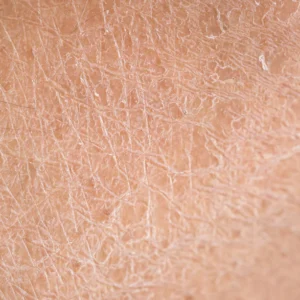1: How to Care for Dry Body Skin: A Comprehensive Guide
Table of Contents
1. Know the Cause of Dryness
Dryness can emerge from a host of causes, namely:

- Such factors may include: Environmental: Long exposure to the sun, either in cold or dry weather conditions, will make the skin lose moisture.
- Hot showers too long: Hot water will deprive the skin of natural oils if used for too long.Use of harsh soap and detergent or cleansers is known to disrupt the skin’s protective barrier.
- Age: When we age, natural oil production reduces, hence the skin dries.
- Medical conditions: Severe dry skin may be one way of representing conditions such as eczema, psoriasis, or hypothyroidism.
2. Hydrate Your Skin from Inside

Proper hydration starts from within. Keep drinking water, as dehydration can worsen any dryness. Include such foods in your regular diet: omega-3 fatty acids-rich foods, for example, salmon, walnuts, or flaxseeds.
3. Choose Your Cleansing Techniques
- Opt for milder cleansers: Choose soap-free or a moisturizing body wash with ingredients like glycerin or hyaluronic acid to help soothe the skin. Avoid products with alcohol or artificial fragrances.
- Shorten the length of showers: Aim for 10 minutes or shorter, taking lukewarm, rather than hot, showers.
- Blot gently: After showering, dry your skin immediately after with a towel. Rubbing it can irritate the skin.
4. Immediately After Showering, Moisturise

Moisture is the key factor in trapping water in the skin. Apply a rich body moisturiser within three minutes after coming out of the shower to lock in hydration. Look for such products:
- Ceramides : Repair the skin barrier.
- Shea butter or cocoa butter : Provide deep hydration to the skin.
- Urea or lactic acid : Gentle yet effective exfoliation and also good moisturizers.
5. Exfoliate Regularly But Gently

Exfoliation removes dead skin cells, which allows moisturiser to penetrate more deeply. Exfoliate gently one to two times a week, using either a body scrub product or a soft washcloth. Do not over-exfoliate or you may damage the skin barrier.
6. Protect Your Skin
- Wear sunscreen: to protect your skin from UV damage that may further dry it out. Choose a broad-spectrum sunscreen with an SPF of at least 30.
- Cover up in winter months: Every winter wear gloves and a scarf to protect your skin from the cold, dry air.
- Use a humidifier: Increase the humidity in your household, and this will help to prevent the skin from getting dry.
7. Avoid Irritants
Things to avoid due to their possible ability to worsen thecondition of the skin:
Skip harsh detergents: Opt for fragrance-free, hypoallergenic products.
Avoid prolonged exposure to chlorinated water: Clean yourself up and moisturize yourself once you’ve splashed around.
8. Seek the Advice of Professionals When Needed
Even after all of that, should dryness persist, kindly consult a dermatologist. Persistent dry skin could indicate some underlying ailment that would need attention.
Conclusion
Taking care of your dry body skin means developing a regimen of being hydrated, nourished, and protected. Following these steps while using the right products will lead you to silky, healthy, and well-moisturised skin throughout the year.
Nurture your skin with right care!




